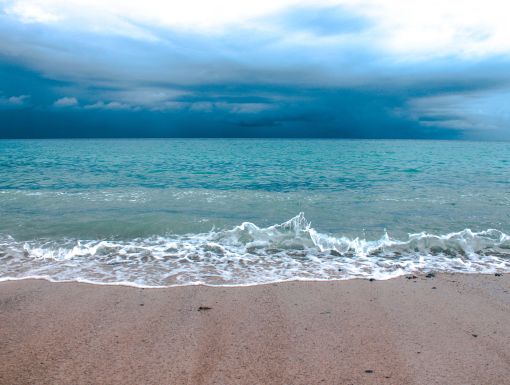
Saltwater Intrusion and Your Health: What Doctors Say You Should Know
The saltwater wedge moving up the Mississippi River from the Gulf of Mexico has captured the attention of medical professionals.
How did this problem arise and exactly how can it harm us? Knowing the answers can help us stay informed on an important health issue.
A severe lack of rain within the Missouri and Lower Mississippi valleys has caused fresh water in the Mississippi River to drop to one of its lowest levels in recent history. As a result, the pace at which the river flows toward the Gulf of Mexico has slowed significantly. That has allowed salty water from the Gulf to work its way upstream, toward drinking water intakes in the river.
How does this affect our bodies?
To work properly, your body needs to take in a relatively small amount of salt. Doing so helps keep the chemicals in our bodies balanced.
However, consuming too much can increase blood pressure and the risk for heart disease and stroke.
Salt causes your body to hold onto water. When there's excess salt in your system, your blood pressure rises and your heart has to pump harder. In time, salt can also narrow blood vessels.
If blood pressure remains high and untreated over an extended period, heart attacks, strokes and other problems can result.
Beyond the cardiovascular issues, excess salt from seawater can cause kidney damage. Seawater contains about 3.5% salt, which is higher than what can be processed by the human body’s plumbing system.
For our kidneys to rid the body of the excess salt taken in by drinking seawater, the kidneys shift into overdrive. This can lead to dehydration and kidney issues.
Who’s at risk?
According to the Louisiana Department of Health, the taste of salt water will stop most people from drinking it – and that’s a good thing.
The Department of Health cautions that people with cardiovascular diseases, such as high blood pressure; those who are already on low-sodium diets; pregnant women in their third trimester, who face a higher risk for hypertension; and infants whose formula is mixed with water need to be “highly attuned” to the water quality.
For people with high blood pressure and heart failure, taking in too much salt can worsen their chronic condition by causing fluid to build up around the heart, lungs and other parts of the body. Difficulty breathing and swelling are often signs of such a problem.
Health experts say people with high blood pressure or heart disease should limit their salt intake to less than 1 teaspoon per day.
People already suffering from kidney disease or those on dialysis are at elevated risks. In addition to causing high blood pressure and fluid buildup around the heart and lungs, excess salt intake can cause discomfort for those taking dialysis treatments.
Our pets should also avoid drinking salty water. A few mouthfuls for a dog might only cause diarrhea and vomiting, but large intakes of salt water can be fatal for our four-legged friends.
What should residents do?
Stay tuned to local newscasts for advisories from local government officials regarding the safety of our drinking water. In addition, residents of New Orleans can register for alerts here or text NOLAREADY to 77295. Residents of Jefferson Parish can sign up for alerts by texting JPALERT to 888777. Residents of Plaquemines Parish can sign up here. And residents of St. Bernard Parish can sign up here.
Be mindful that if the government advises that residents switch temporarily to bottled water, this includes ice. Residents should turn off the ice makers in their freezers and the water dispensers in their refrigerators and make ice with bottled water.
Monitor for mild symptoms of dehydration such as dry mouth, infrequent urination, dizziness and fatigue. If you experience more severe symptoms like nausea, vomiting or mental status changes, seek emergency medical care immediately.
Finally, consult your physician if you have questions or concerns related to saltwater intake and your health. If you have been advised by a medical professional that you should be on a low-sodium diet, be sure to monitor the amount of sodium you are consuming in your diet and stay attuned to your local government officials and the Louisiana Department of Health for the condition of water in your area.


